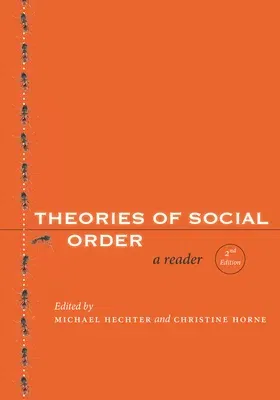Already a standard in its first edition, this newly expanded and
reorganized reader provides a compelling exploration of what arguably
remains the single most important problem in social theory: the problem
of social order. Contending that theory's purpose in the social sciences
lies in its ability to explain real-world phenomena, Theories of Social
Order presents classic texts alongside contemporary theoretical
extensions and recent empirical applications.
Building on the success of the first edition, the second edition focuses
readings around five key social structures that affect social order:
individuals, hierarchies, markets, groups, and networks. Its unique
approach--focusing on theories rather than theorists--encourages
students to compare various factors and mechanisms, seek common
analytical themes, and develop a deeper theoretical understanding of the
problem of social order. By pairing alternative explanations with
empirical research, it helps students grasp the essential lesson that
social theory must have empirical implications. This critical lesson
emphasizes the relevance of theory to real life, the research
enterprise, and the development of better social policies.
Added readings in the second edition highlight the extent to which the
problem of social order is of interest across the sciences and
demonstrate the relevance of social order in understanding gender and
ethnic group dynamics. Editorial introductions to each section discuss
the causal mechanisms in each theory and make clear links between
classical and modern texts.

